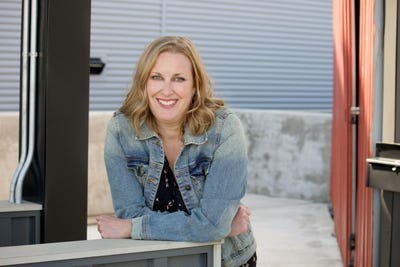Page to plate: What do you cook for Michael Pollan?
How BC Dining Services created a rule-based menu for dinner with the esteemed author and food activist.

Many chefs have had dinner guests they’ve really wanted to impress. For Frank Bailey, executive chef of Boston College Dining Services, that moment came when Michael Pollan visited BC for a lecture and—gulp—dinner. Pollan is the man who wrote the book—literally—on the rules of food; his journalistic research and writing has addressed the way food is grown, how it’s consumed and what that says about us and what it means to the future of our planet. No big deal cooking dinner for him, right?!
“The nerves were in play,” Bailey admits. “But it was exciting. He’s such a food luminary…every serious cook has to read at least one of his books and most of his essays. It’s nearly required reading to be relevant in the industry. It’s the point where social justice and food policy intersect…When Omnivore’s Dilemma came out, that kind of changed everything.”
 The main course: sugar pumpkin with dukkah spices.
The main course: sugar pumpkin with dukkah spices.
So Bailey and Scott Levine, catering director at BC, planned the menu for the evening—which would include Pollan and a small group of guest faculty and students—by taking the page to the plate.
“Pollan emphasizes eating locally and seasonally, and the timing was great for us, because in New England, autumn is really our season,” Bailey says.
The internationally recognized author’s most succinct and well known rule is “Eat food. Not too much. Mostly plants.” But he goes much further in depth, with ideas on ingredients that chefs can refer to, like “Favor the grains that have been ground by stone,” and “If it’s a plant, eat it. If it was made in a plant, don’t.”
“We had his rules in mind and it was the seed to write the menu. We looked at what produce is beautiful this time of year and the menu almost wrote itself.”
The main course was sugar pumpkin with dukkah spices, with sides of spicy grilled carrots in an Aleppo chili yogurt sauce and a Middle Eastern grain and feta sheep milk cheese salad, all of which corresponded to one or more of Pollan’s “food rules.” One of his rules, “Don’t Overlook the Oily Little Fishes,” worked perfectly with a fried rainbow smelt on sourdough toast with kohlrabi. Dessert was local roasted pears with a cider reduction and quinoa-local maple syrup brittle for crunch.
Bailey and the team set up a backyard kitchen at an old house owned by the college and opted for family-style service rather than a buffet, as a way to “get more flavors out in front of our guests,” Bailey says.
 Sides included a Middle Eastern grain and feta sheep milk cheese salad and spice grilled carrots in an Aleppo chili yogurt sauce.
Sides included a Middle Eastern grain and feta sheep milk cheese salad and spice grilled carrots in an Aleppo chili yogurt sauce.
“Plus, it was an opportunity for everyone to sit around the table and talk,” he continues, adding that the conversation veered into food and politics, an interesting night for all.
Pollan told Bailey that lots of times, groups at his speaking engagements will “chicken out” and take him to the best restaurant in town, rather than cooking for him themselves. He called this meal at BC one of the finest he’s had.
“The first thing that throws you is that he’s really tall,” Bailey says of Pollan. “He’s very personable and gracious. He came to dinner early so he could come hang out in the backyard kitchen.”
 And for dessert: local roasted pears with a cider reduction.
And for dessert: local roasted pears with a cider reduction.
About the Author
You May Also Like



.jpg?width=300&auto=webp&quality=80&disable=upscale)


